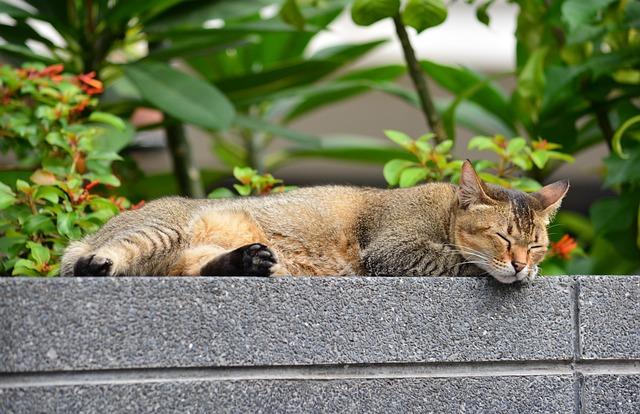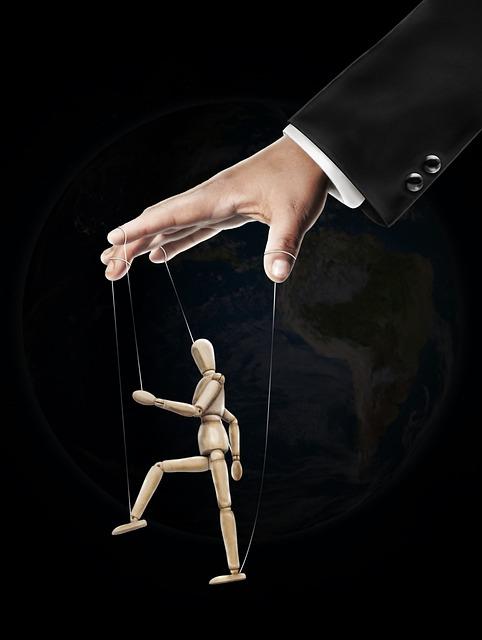Waking Up Early is White Supremacy: Myth or Reality?

Title: The Early Bird: Unraveling the Ties Between Waking Up Early and White Supremacy
Introduction:
Rising with the sun, seizing the day, and adopting a disciplined routine has long been championed as a path to success. But what if we told you that the act of waking up early holds a hidden connection to white supremacy? At first glance, this assertion may sound startling or even absurd. However, it is these thought-provoking questions that propel us to examine our beliefs and challenge preconceived notions. In this article, we delve into the controversial topic of whether waking up early is indeed tied to white supremacy—a myth or an inconvenient reality? With a thoughtful exploration of historical context, psychological perspectives, and societal narratives, we aim to shed light, challenge assumptions, and provoke meaningful discussion on this intriguing subject. Let us embark on this enlightening journey together, armed with curiosity and an open mind, and see where this unconventional exploration takes us.
Contents
- The Controversy Surrounding Early Morning Routines
- Examining the Historical Context of Waking Up Early
- The Impact of Early Rising on Productivity and Success
- Understanding the Relationship Between Sleep Patterns and Culture
- Exploring the Psychological Effects of Different Sleep Schedules
- Challenging the Assumptions: Debunking the Link to White Supremacy
- Promoting Equal Opportunity: Embracing Diverse Sleep Patterns
The Controversy Surrounding Early Morning Routines
Early morning routines have long been a subject of discussion and debate, often lauded as the key to success and productivity. However, recent arguments have emerged, claiming that waking up early perpetuates white supremacy. While this assertion may seem surprising at first, it’s important to examine the context and understand the perspectives involved.
Proponents of the idea argue that early morning routines have historically been associated with the Western work ethic and capitalist society, which were shaped predominantly by white culture. The emphasis on productivity and efficiency, often attributed to waking up early, aligns with the values traditionally championed by white-dominated societies. This dynamic has resulted in the perception that those who prioritize early rising are more disciplined, hardworking, and ultimately superior.
On the other hand, proponents of early morning routines argue that this controversy is based on misinterpretation. They contend that waking up early is not inherently tied to white supremacy, but simply a personal choice that allows individuals to harness the peace and tranquility of the early hours. Furthermore, they argue that early rising can offer numerous benefits, such as increased focus, improved mental health, and more time for self-care.
Ultimately, it is crucial to approach this controversy with nuance and understanding. While it’s essential to acknowledge the historical context and power dynamics at play, it is also important to recognize individual agency and personal preferences. Whether one chooses to embrace an early morning routine or not, it is a choice that should be respected, devoid of judgments and unfounded claims.
Key Points:
- Controversy surrounding early morning routines
- Allegations of waking up early perpetuating white supremacy
- Early morning routines historically associated with Western work ethic
- Advocates argue for personal choice and benefits of early rising
- Approaching the controversy with nuance and respect for individual agency
Examining the Historical Context of Waking Up Early
Throughout history, the act of waking up early has been intertwined with various cultural and societal norms. Some argue that the idea of waking up early is rooted in white supremacy, while others dismiss this claim as a myth. To truly understand the historical context of waking up early, we must delve into the factors that have shaped our perception of this practice.
1. Agrarian societies: In many agrarian societies, waking up early was a necessity for survival. Farmers had to rise with the sun to tend to their crops and livestock. This early morning routine became deeply ingrained in their culture and was passed down through generations.
2. Industrial revolution: The industrial revolution brought about significant changes in society and work patterns. Factory workers were often required to start their shifts in the early hours of the morning, leading to the normalization of waking up early.
3. Colonial influence: The notion of waking up early as a mark of productivity and efficiency was introduced by colonial powers in their quest for dominance. This mindset perpetuated the belief that those who woke up early were more disciplined and superior.
4. Cultural expectations: Certain cultures value waking up early as a sign of diligence and ambition. These expectations can create societal pressure to conform to an early wake-up routine, reinforcing the idea that success is only achieved by getting a head start on the day.
While there may be historical associations between waking up early and certain societal norms, it is crucial to approach this topic with nuance and avoid sweeping generalizations. Embracing a diverse range of sleep patterns and rejecting the notion that waking up early is inherently superior can help foster a more inclusive and understanding society. Remember, the true measure of productivity lies in finding a routine that works best for each individual, regardless of the time they wake up.
The Impact of Early Rising on Productivity and Success
Many people associate waking up early with productivity and success. However, recent discussions have sparked the debate over whether this belief perpetuates the notion of white supremacy. While it is essential to examine different perspectives, it is crucial to separate the myth from reality and understand the true impact of early rising on productivity and success.
Myth: Waking up early is inherently linked to white supremacy.
Reality: The correlation between waking up early and white supremacy is a misconception. The focus should instead be on understanding the underlying factors influencing productivity and success.
Factors contributing to productivity and success:
- Personal discipline: Regardless of the time one wakes up, a key determinant of productivity and success lies in an individual’s discipline and self-motivation.
- Effective planning: Having a well-structured agenda and prioritizing tasks can lead to increased productivity, irrespective of waking up early or late.
- Quality of sleep: The quality of sleep matters more than the timing. Adequate rest and practicing good sleep hygiene are crucial for improved cognitive functions and overall well-being.
It is important to recognize that success and productivity are multifaceted and influenced by various factors that extend beyond waking up early. Emphasizing inclusivity and understanding diverse approaches to achieving goals can help debunk the myth that equates early rising with white supremacy. Let’s focus on empowering individuals with insightful strategies and nurturing a well-rounded understanding of what truly drives productivity and success.
Understanding the Relationship Between Sleep Patterns and Culture
Sleep patterns and cultural practices are intrinsically linked, and the notion that waking up early is rooted in white supremacy is a complex and controversial topic. While it is true that certain cultures prioritize early rising, it is important to approach these observations without making broad generalizations or perpetuating stereotypes. Let’s explore this relationship and examine the underlying factors that contribute to differing sleep patterns across cultures.
1. Historical Context:
– Certain cultures, influenced by historical events, may have adopted specific sleep patterns. For example, agriculture-based societies often rise early to maximize daylight hours for farming activities.
– Colonialism and imperialism have also impacted sleep patterns. The dominance of Western culture in some regions may have influenced the adoption of early rising as a symbol of progress and productivity.
2. Environmental Factors:
– Climates and geographical locations play a role in sleep patterns. Cultures living near the Equator, where the sun rises and sets more consistently, may have different sleep patterns compared to those in regions with more drastic seasonal changes.
– Urbanization and artificial light can also impact sleep patterns. In cities with vibrant nightlife, people may sleep later to accommodate social activities that extend into the night.
3. Cultural Values and Norms:
– Cultural values and societal expectations contribute to sleep patterns. Some cultures emphasize productivity and efficiency, encouraging early rising as a virtuous behavior.
– In contrast, other cultures prioritize relaxation and the enjoyment of life, leading to a preference for later wake-up times.
requires a nuanced approach that goes beyond stereotypes or oversimplifications. It is essential to recognize that sleep patterns are influenced by a multitude of factors, including historical, environmental, and cultural contexts. By examining this relationship in a thoughtful and unbiased manner, we can gain a better understanding of the diverse ways in which different cultures approach sleep.
Exploring the Psychological Effects of Different Sleep Schedules
Our sleep schedules play a crucial role in our overall well-being, and there has been a growing interest in exploring the psychological effects of different sleep patterns. One debate that has emerged in recent years is whether waking up early is linked to white supremacy. Let’s delve into this controversial topic and separate myth from reality.
While it is true that certain ideologies, including white supremacy, have historically advocated for early rising as a way to promote discipline and productivity, it is inaccurate to generalize this association to all individuals who wake up early. It is essential to approach this matter with nuance and acknowledge that waking up early can have both positive and negative effects on an individual’s psychological well-being.
On the positive side, early risers often report increased productivity, a sense of accomplishment, and improved mental clarity throughout the day. These individuals may find it easier to establish a routine, achieve their goals, and have more time for personal hobbies or self-care activities. However, it is crucial to note that the benefits of waking up early are not universal and can vary depending on an individual’s biological predisposition, lifestyle, and daily responsibilities.
Challenging the Assumptions: Debunking the Link to White Supremacy
One of the prevailing assumptions in our society is that waking up early is a sign of discipline, productivity, and success. However, recent discussions have challenged this notion, suggesting a link between waking up early and white supremacy. Is this connection a myth or a reality? Let’s dive deeper and debunk the assumptions.
Firstly, it is essential to recognize that the concept of waking up early being associated with white supremacy is rooted in a broader critique of societal norms. This critique questions why certain behaviors and practices, such as waking up early, are valorized, while others are marginalized. By highlighting the racialized undertones of this valorization, proponents argue that it perpetuates a system that disproportionately benefits white individuals.
While it is true that there has been a historical association between productivity and success, it is critical to challenge this connection without generalizing it as a characteristic of white supremacy. The concept of time and productivity varies across different cultures and individuals. Labelling waking up early as inherently linked to white supremacy oversimplifies the complexity of historical and social factors surrounding the issue. It is crucial to remember that ideas and attitudes towards waking up early have evolved over time, and we must approach it with nuance and an understanding that determinants of success are multifaceted.
Promoting Equal Opportunity: Embracing Diverse Sleep Patterns
Sleep patterns can vary greatly among individuals, influenced by factors such as genetics, culture, and personal preferences. It is important to recognize that there is no one-size-fits-all approach when it comes to waking up early or sleeping in a little longer. The notion that waking up early is tied to white supremacy is a myth and should not be taken as a reality.
Embracing diverse sleep patterns means acknowledging and respecting the uniqueness of each individual’s internal clock. Some people naturally have a predisposition for being early risers, while others function better during the evening hours. This diversity in sleep patterns is not determined by race or ethnicity but rather personal variations in circadian rhythms.
It is crucial to promote equal opportunity by providing flexibility in work and school schedules to accommodate different sleep patterns. By embracing and understanding the diverse sleep needs of individuals, we can create an inclusive environment that values everyone’s productivity and well-being.
To foster inclusion, some practical steps can be taken. These include offering flexible work hours, adapting school start times to align with different sleep patterns, and encouraging open conversations about individual preferences regarding sleep schedules. By doing so, we can create a society that supports the diverse needs and well-being of all its members. Let’s embrace the beauty of our differences and debunk the myth that connecting waking up early to white supremacy holds any truth. Everyone deserves equal opportunities, regardless of their sleep patterns. In conclusion, the idea that waking up early is linked to white supremacy falls into the realm of myth rather than reality. While it is true that certain societal structures and historical factors have influenced our perception of early rising, it is essential to approach this subject with objectivity and an understanding of diverse cultural and historical contexts. Waking up early should not be reduced to a binary association or a judgment of one’s character or beliefs. Instead, let us celebrate our differences, respect individual choices, and recognize that the true measure of a person lies in their actions and values, not their alarm clock. So rise and shine, whenever that may be, with confidence and the knowledge that we together shape a world that embraces diversity, inclusivity, and equality.













